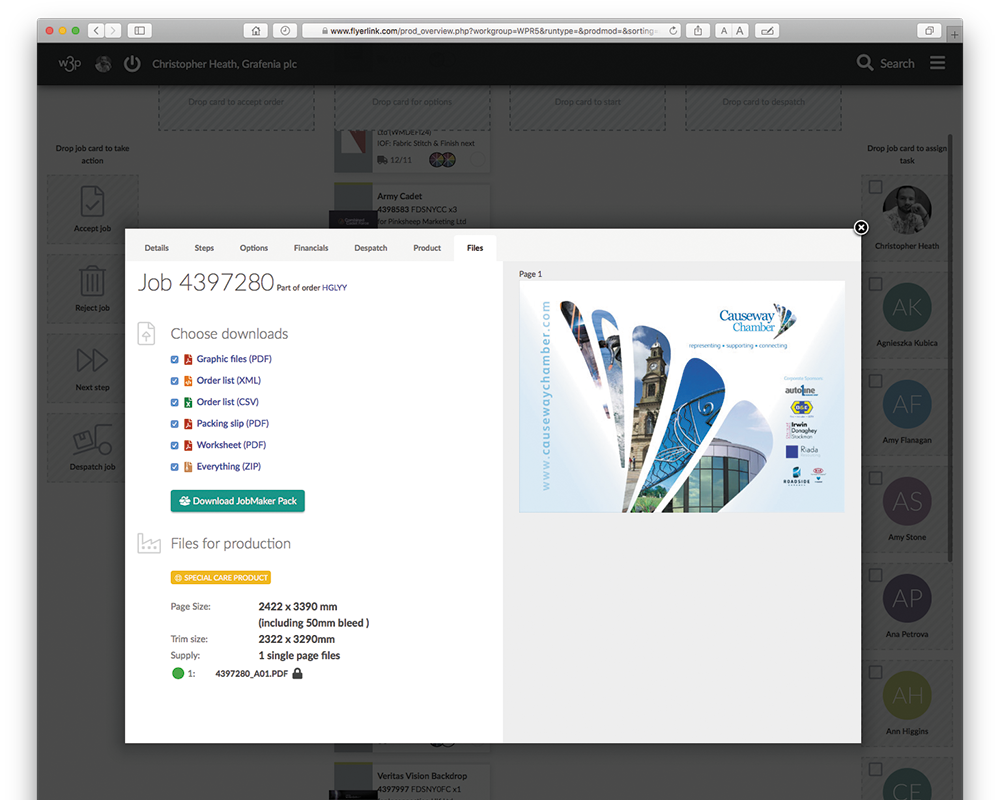RUNNING
PRODUCTION
Say yes to more things
Even if you have your own production department, there’ll be things you need to outsource from time-to-time.
Nettl studios are hooked into our supply chain and get factory-direct, wholesale pricing. The range covers litho, digital and large format printing. On fabric, rigid substrates, vinyls, paper and boards. From business cards to billboards and building wraps. Signage, exhibitions and point-of-sale.
It’s all in the online Product Bible. But, instead of parables, in our Bible you’ll find neatly arranged product categories. And our gospels are fast, fixed turnarounds, on time, as promised.
It’s easy to see what you pay and which products are delivered next day, for clients with planning disasters of biblical proportions.
Each product quantity has a suggested retail price, so you can give customers an instant quote. Rejoice!
It’s just one click to turn a product into an order. Like some sort of miracle. Can I get an Amen?
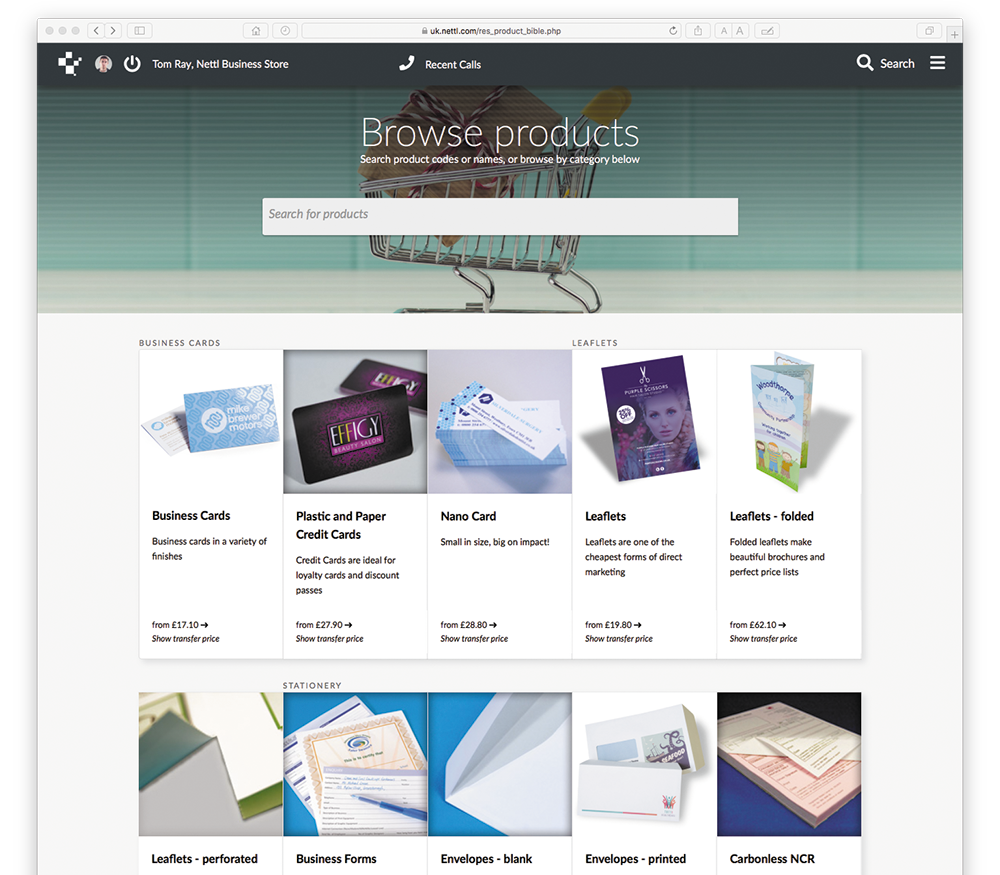
A little personal help
You say potato, we say Maris Piper cheesy mash.
You say tomato, we say solanum lycopersicum.
Things get lost in translation. We keep jargon to a minimum, but maybe our dinner is your tea.
Sometimes you know what you want, but you’re not quite sure what it’s called.
That’s what Personal Shopper is for.
It’s a bunch of human experts, who know their di-bond from their elbow. They’re around to help studios with stuff they might not be familiar with.
Just tell Personal Shopper what you’re looking for. Maybe share a diagram, link or photo. Then request a callback or get emailed help from a specialist.
They’ll point you to a suitable product, or create a custom quote for something out of the ordinary. They’ll even create an order for you, ready for your artwork.
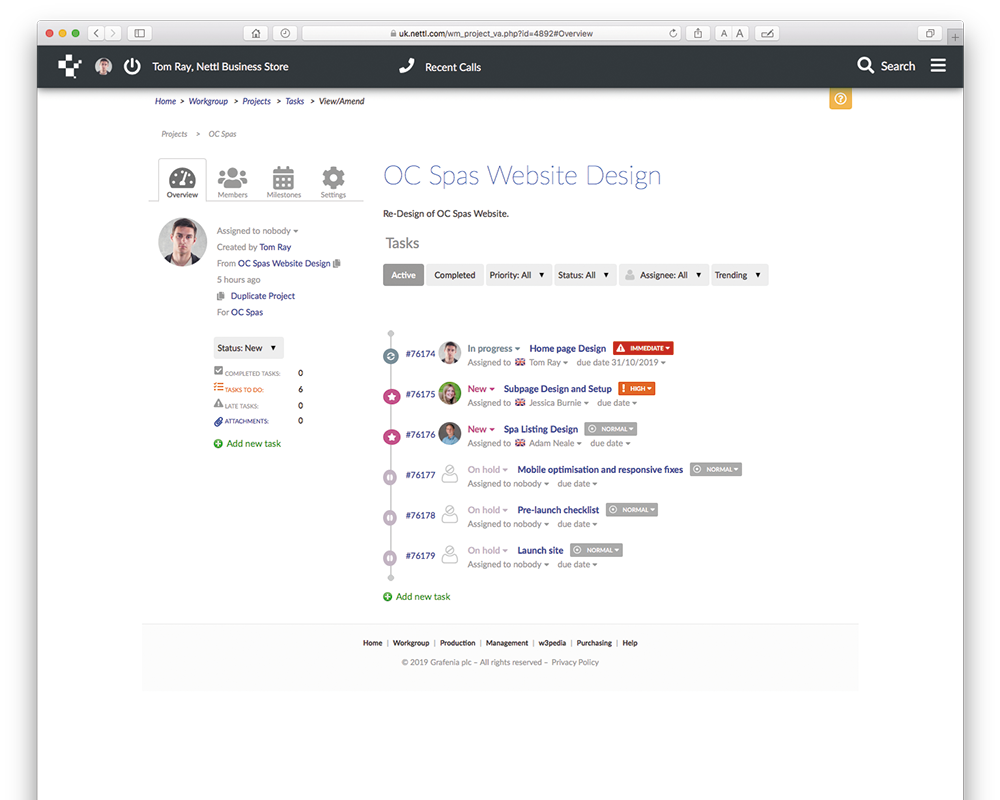
The wisdom of the crowd price
Hundreds of independent businesses are part of the Nettl network. They’re reselling print, signs and displays to clients. They’re professional buyers and they’re a savvy bunch.
We’ll let you into a little secret. There’s always someone willing to print cheaper than our transparent Product Bible prices. That’s why Personal Shopper matches like-for-like offers. Studios share a competitor quote and Personal Shopper creates a price match voucher to use. But it gets better.
If someone in the network finds a cheaper price, we make it available to everyone. We call it Crowd Price. You could use price match vouchers other Nettl studios have requested. And they can use yours. They all see vouchers in the Product Bible as little magenta badges of discount heaven.
So. Where do you see yourself in five years? With a load of browser tabs open? Sniffing out a few pence or cent savings here and there? Or trusting the wisdom of Crowd Price so your team can focus their energy on higher value activity?

Sell your own stuff
If you’ve ever built an ecommerce shop, you’ll know how much time you need to invest in merchandising a product range. Descriptions, prices, options, imagery. It all takes effort.
In chapter six, we’ll uncover what happens in Nettl.com’s online shop and how studios create private shops, pre-filled with the full Product Bible range. With zero effort.
If you have your own manufacturing, or sell products sourced elsewhere, it’s easy to manage those in w3p.
Studios can use w3p’s visual Product Builder to create their own products. A bit like listing an item for sale on eBay. If they have lots to enter, then bulk product importer makes things faster. They fill out a csv file. If image links are included, w3p automatically retrieves them and uploads them to our content delivery network (or cdn, if you’re a massive geek).
Just like templates, studios can give everyone, or individual clients permission to buy their own products. Or restrict to selected groups. To make them feel special.

Kanban production dashboard
What happens when someone places an order? If the product is manufactured by the Nettl supply chain, studios click and forget.
If it’s their own product, they’ll need to make it.
How do you manage your workflow today? Some folk have a paper-based system, or print reports from an older system.
You might like w3p’s Production Dashboard. It’s a kanban card-based system, like Control Desk you saw earlier.
First, there’s orders and files To Accept. Then jobs ready To Make. When an operator starts a job, the card moves to In Progress, adorned with their smiling face. When all steps are complete, it’ll move To Despatch, ready to print shipping labels.
A production manager assigns tasks to team members by dragging a card to their little face on the right.
The dashboard is perfect for touch devices, like iPads or Amazon Fire tablets. Working live means the team see what needs done, real time. All the information they need is a click away. Umai.
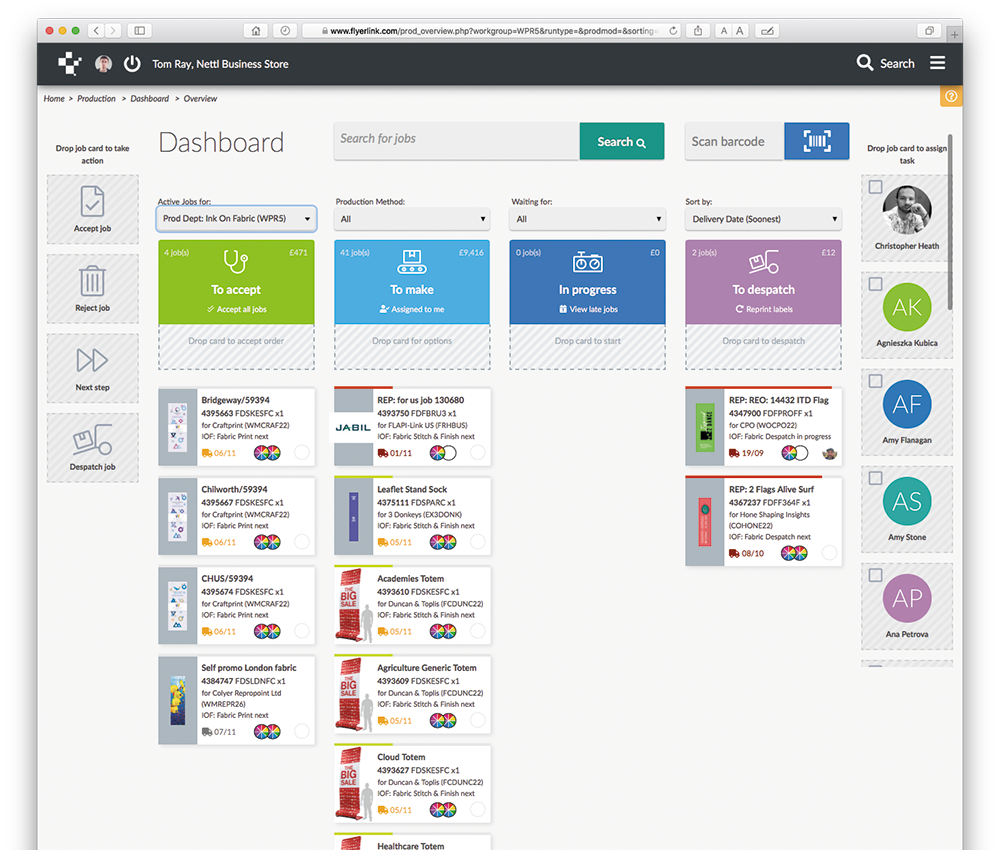
Manage every step of the process
If you have your own factory, you probably use multiple machines and multiple processes. Making a roller banner is different to printing raffle tickets.
In w3p each product can be attached to a Production Method. It’s a way of segregating work, so different departments can filter tasks they need to do.
Each method is a different route through the factory. The simplest route might be print, then despatch. Or teams might want to create more sophisticated flows to match real life. Making greeting cards might be File check, print, laminate, crease, trim, pack, ship. We call these Production Steps.
Has your operator ever creased a job before it was laminated? Of course they creasing have. So w3p can observe must do rules. An operator can’t start a step until a previous step has been done. Quality boffins call it critical path conformance. But we like to keep things simpler than that. So operators just see a little padlock. Like a little chastity belt, preserving a job’s perfection.
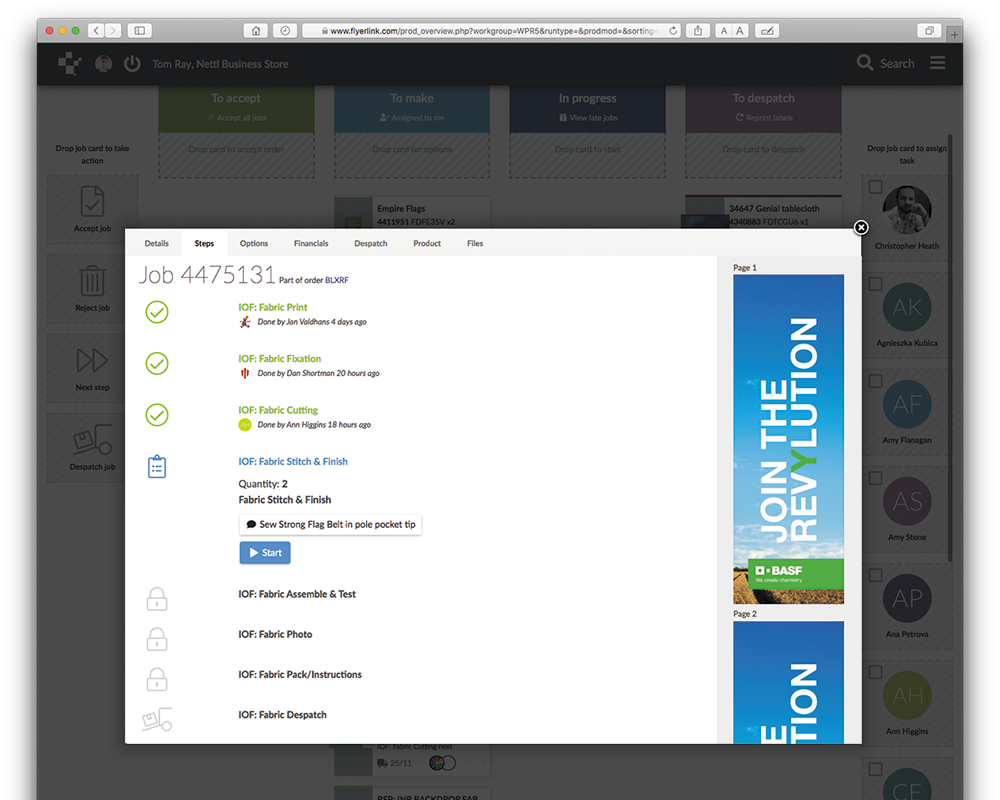
Plumb in suppliers
There’ll be times you use third-party suppliers for weird client requests. Maybe you have a weird client who insists on some special item you regularly need to supply. Maybe you just have a weird client, full stop. One who says they go dancing with John Travolta.
When Nettl studios create products, they specify whether they’re making them in-house or outsourcing. We call the latter OpenSource Products and w3p makes them easy to manage.
When a studio uploads design files, we lock them in place. So they can’t sneakily switch files after printing starts.
For OpenSource products, w3p lets a third party supplier know when an order is ready. We email them a link to download a JobMaker Pack. Everything they need is zipped up – graphic files, worksheet, packing slip and production step barcodes.
Studios can even give each supplier their own private Production Dashboard, to manage them like their own factory. Tracking their progress. Live. From miles away.
“Just round the corner, mate.” Dashboard says you’re lying. Mate.
